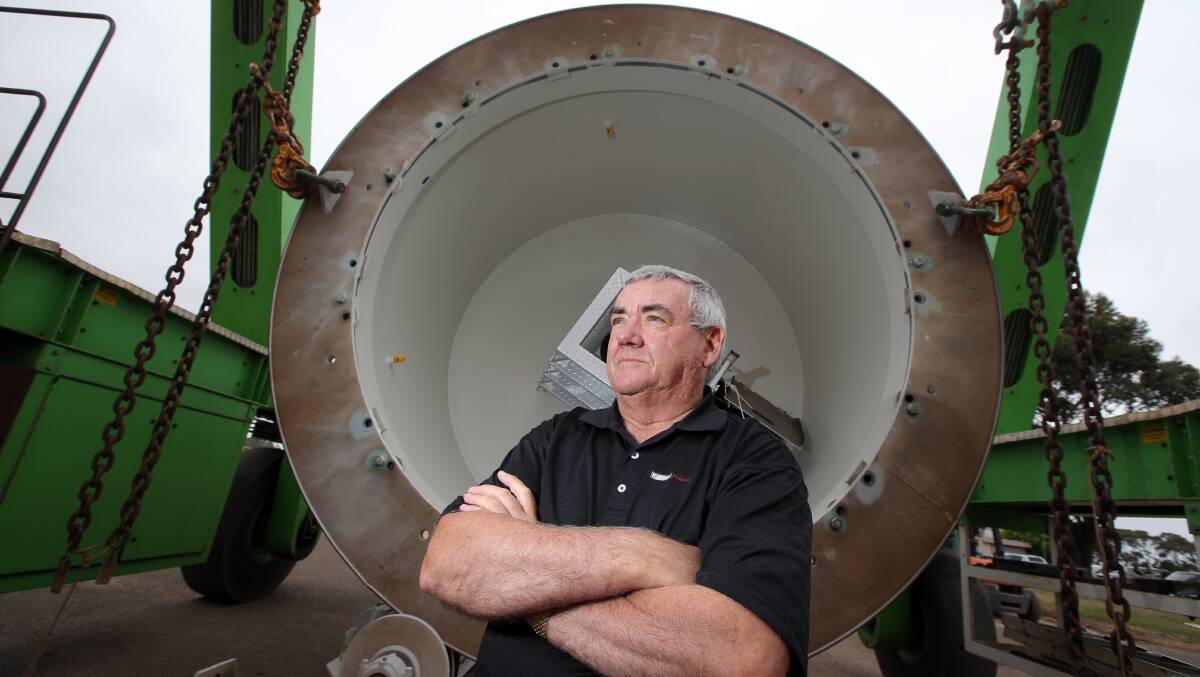
PORTLAND wind turbine tower manufacturer Keppel Prince hopes to start hiring new employees in another year following the federal government’s decision to set a renewable energy target (RET) for 2020.
Subscribe now for unlimited access.
or signup to continue reading
Keppel Prince assistant general manager Dan McKinna said the government’s decision this month to set a RET for 2020 at 33,000 gigawatt hours gave the firm a very positive future but he expected it would be another six months before it created new work for the business.
The company was last year forced to lay off 85 workers because of a slump in business caused by uncertainty over the future of the RET.
Wind energy companies throughout Australia stalled their projects while the federal government, Labor opposition and crossbench MPs argued for about 18 months over what the revised RET should be.
The Australian Wind Alliance estimated the drawn out wrangling stalled about $2.8 billion of investment by wind energy companies in the Wannon electorate alone.
Mr McKinna said the long-awaited decision on the RET was “good news for our community”.
Keppel Prince had already bid to make the turbine towers for several wind farms that might “kick off at the end of the year” following the RET decision, Mr McKinna said.
“We are looking to expand our facilities and take on additional employees in the middle to second half of next year,” he said.
He expected many of the 85 workers laid off last year had since moved away from Portland but hoped those who remained would return to Keppel Prince.
In other developments on renewable energy, member for Western Victoria James Purcell has backed the state government calls for an end to the ban on state-based RETs.
The state government this month called for an end to the ban so it could reintroduce its own RET to “top up” the federal renewable energy target.
Mr Purcell said a state-based RET “opens the door for south-west Victoria to become a hub for renewable energy generation in Australia.”
“Without states being able to top up the RET with their own state-based targets, a number of major renewable energy projects won’t go ahead, costing jobs and growth in our region,” Mr Purcell said.
“Every state has different natural energy resources and should be able to tailor a program to work to their individual strengths and weaknesses.
“It also provides security to the industry if the national RET should fall over.
“It’s vital we support a Victorian renewable energy target, especially when our region has such a strong wind resource available,” Mr Purcell said.














